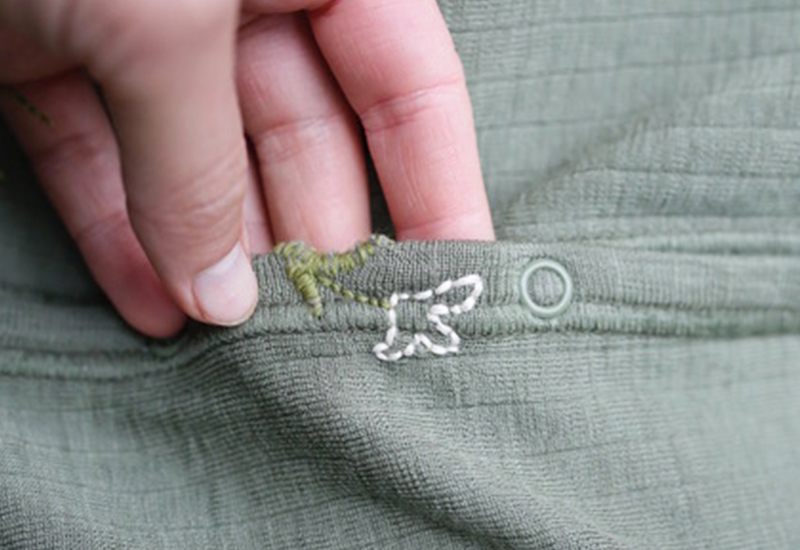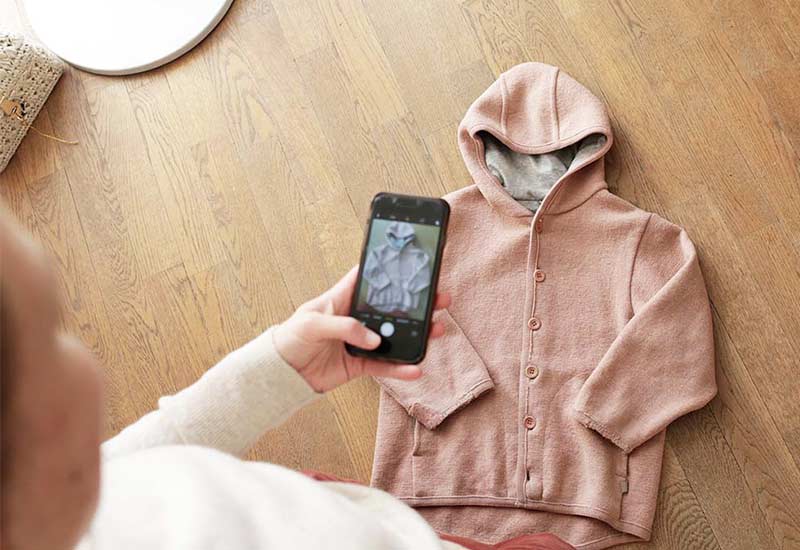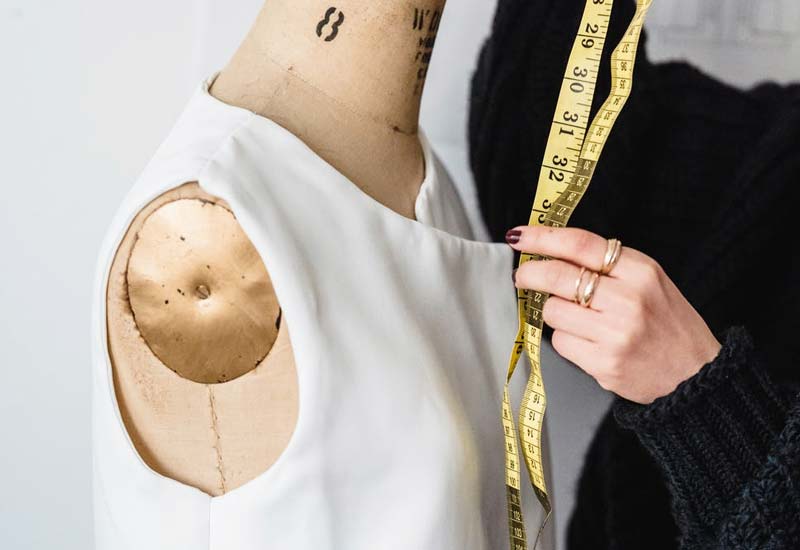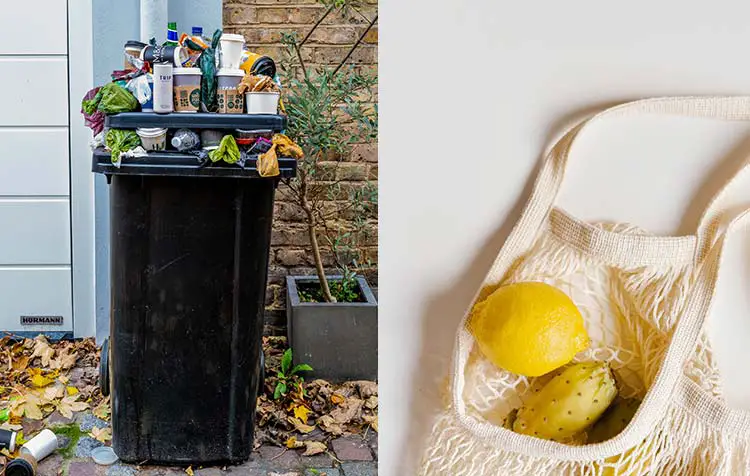What Zero Waste options are available to us in everyday life - when and where can we avoid waste? One minimalist lifestyle to lead, produce less waste and as far as possible live plastic free - that's what many of us wish for. And yet many don't even get started because the task seems so big. Yet it doesn't have to be the big one right away, fitting your entire year's worth of waste into a canning jar. That can make us rather faint. Because we can already see the failure before our eyes, we prefer to leave it alone.
No, the way to less waste and plastic in everyday life, towards a resource-saving, sustainable life consists of many small steps. And they add up to make a big difference.
In this article, I want to give you some simple, actionable tips that you and your family can use to reduce waste and get on a good path toward Zero Waste are. And if you think that sounds like a big buzzkill, then you should read on even more. Because you'll see that litter prevention can even become a social event.
In advance already a short Table of contents for the article:
- Repair instead of buying new
- Host swap parties
- Give things away
- Recycle items
- Resell unused clothing
- Buy less
- Sustainable shopping
- Buy second hand goods
- Pay attention to sustainable providers
- Use size charts
What options do I have to avoid waste?
Waste avoidance is no magic trick! Especially because waste is generated in almost all areas of everyday life. So the potential is huge. Then let's waste no time and jump right into Zero Waste opportunities. Let's go!
1. repair instead of buying new

We live in a consumer society and are constantly surrounded by advertising. This arouses desires and is intended to tempt us to keep acquiring new things. The Moment of happiness through consumption But it usually only lasts for a short time before our brain suggests that we could also buy that nice bag, the next skirt, another pair of shoes to really feel complete... Does that make you happy in the long run? It has been my experience that the value of things increases when I take care of them. When I take care of something and fix it when it breaks - instead of buying it new - I really learn to appreciate it.
This works wonderfully with clothing, for example. A beautiful patch or darned hole makes your garment unique and gives you the lasting good feeling of having made something meaningfully beautiful yourself.
2. organize swap party
Have you ever participated in a swap party? This great invention combines the sensible with a great fun factor. For example, if you realize that you don't wear many clothes from the last few years anymore, you can organize a swap party with your friends. Everyone brings "no longer worn" from their own closet and then the big trying on begins.
Whoever likes it best or whoever it suits best takes it home and gives new life to the garment. Thus, garments please several people at once and do not have to end up in the trash for a long time.
3. give things away
A few years ago a wonderful institution was established in our house: the Staircase giveaway market. On a windowsill and on the floor in front of it, all sorts of discarded things from the household are given away. From books to clothes to household appliances, everything is there. Here my children and I have already found real treasures! Not only clothes, but also a floor lamp, great picture frames and board games for the kids were there.
These are great Zero Waste opportunities because Items that you would rather put in the "junk" category can still raise a smile in others.
4. recycle
Broken does not mean ripe for the dustbin! There are now many beautiful examples of recycling or upcycling. With a little creativity you can conjure up completely new from old things or clothes - which then also have an absolute unique value. For example, if your beloved wool sweater has a few holes, you could sew baby pants from the good piece. And old T-shirts can be used to make cleaning rags for the kitchen.
5. resell clothes that are not used

Giving away is all well and good, but for some valuable parts you would still like to have a little money? There is also a solution for this: in recent years, helpful online platforms have been launched, such as the Kleiderkreisel or Vinted. Here you can post parts that you no longer need, with photo, description and desired price. So well preserved finds grateful new owners!
Tip: This is also a nice example of how you can save money through sustainability can. In the article, you'll learn even more reasons why a resource-efficient lifestyle doesn't have to be expensive.
6. buy less
It can be waste-avoiding and, by the way, totally liberating to ask yourself that one question before every purchase: do i really need this? This is the Psychology of minimalism. Of course, there are things that we don't really need in that sense, but because our heart is attached to them, we want to indulge in them. That's absolutely okay. But the extent to which our Disposable society has adopted is anything but okay.
And that's why it helps me to listen to myself before making a purchase and ask myself a question: do I perhaps only want to fill an empty hole inside me with this product? Or won't I live just as well if I don't buy this thing as well? Because many things can also be ballast. Or substitute for a need that wants to be satisfied in a completely different way than through consumption.
Tip: In a separate article I will present you some everyday things that I no longer buy. Feel free to take a look!
7. sustainable shopping
It's best to make sure when you buy things that they're made in the most environmentally friendly and resource-saving way possible - because even the things you don't see right away count as zero waste options.
Some time ago I read a quite inspiring interview with the journalist Kathrin Hartmann. She pleads for a System in which consumers no longer have to worry about whether something has been produced in a socially just and ecological way when they go shoppingbecause there is no other choice. I find this idea so great. But it could still be a long way until then.
And until that happens, seals such as Bio, Fairtrade, GOTS and IVN Best help us to see at a glance whether something has been produced according to traceable, socially and ecologically correct standards. You can also find out more about this at sustainable fashion.
8. buy secondhand goods
The sweet romper has just been bought and your baby has already outgrown it again? The little ones are growing up at an enormous pace - on the one hand super nice, but on the other hand they also fall out of the romper. constantly new acquisitionsn for the closet and lots of Mountains of unusable clothing an.
Here, secondhand stores and (children's) flea markets offer a inexpensive and environmentally friendly alternative. Not only can you buy clothes and baby and children's products, but of course you can also bring your own discarded ones. And a joint stand at the flea market quickly becomes a popular social event with good friends.
9. pay attention to sustainable providers
Not all stores are the same. In order to reduce waste, it is immensely worthwhile to take a closer look at a company from which you want to buy. How is it doing in terms of environmental awareness and waste avoidance? Is the topic of sustainability just an empty shell and Greenwashing or are there transparent and comprehensible standards and philosophies?
We as a company are in contact with all our manufacturers and get a picture of the production conditions before we include them in our store. Through Bio certifications we can be sure that the company is independently audited on a regular basis. But as a company we can do much more and are constantly learning and improving. For example, we only use green electricity, we reuse packaging materials wherever possible, and in most cases we travel the distance between our warehouse and stores by e-bike rather than by car. And here we try to be as open as possible and communicate our efforts to you.
Tip: Be sure to also check out the post about Climate protection in the company to promote environmental protection in your company.
10. use size charts

Our last tip is not so much about zero waste, but about environmental awareness in general: it helps enormously if you check the size charts of the manufacturers before buying online. Whether it's stockings, hats or other garments, you can use the size charts to find out what size fits you or your child. So you have to not send several sizes back and forthbut are satisfied as directly as possible. And save electricity, packaging waste and fuel for the return.
Tip: How else you - as a business owner or buyer - can Avoid online returns you can find out in the detailed article.
Take advantage of opportunities to avoid waste!
If you follow these tips from time to time in your everyday life, the initially unfamiliar behavior will slowly become a habit. I wish that more and more people would adopt a sustainable lifestyle. make a habit and that our many small steps make a noticeable, big difference in the end.
Look gladly times in my Purple lambs online store by. In addition to numerous organic clothing items for babies, children and adults, you will also find many other tips for an environmentally friendly approach to clothing.
Do you have any questions or suggestions about this post on Zero Waste opportunities? Then feel free to leave me a comment.
Stay sustainable,

PS.: Do you already know what Slow Fashion is? In the linked article, you will now learn what is behind the term "slow fashion". In addition, you get under Zero Waste Tips even more inspiration to reduce waste.





